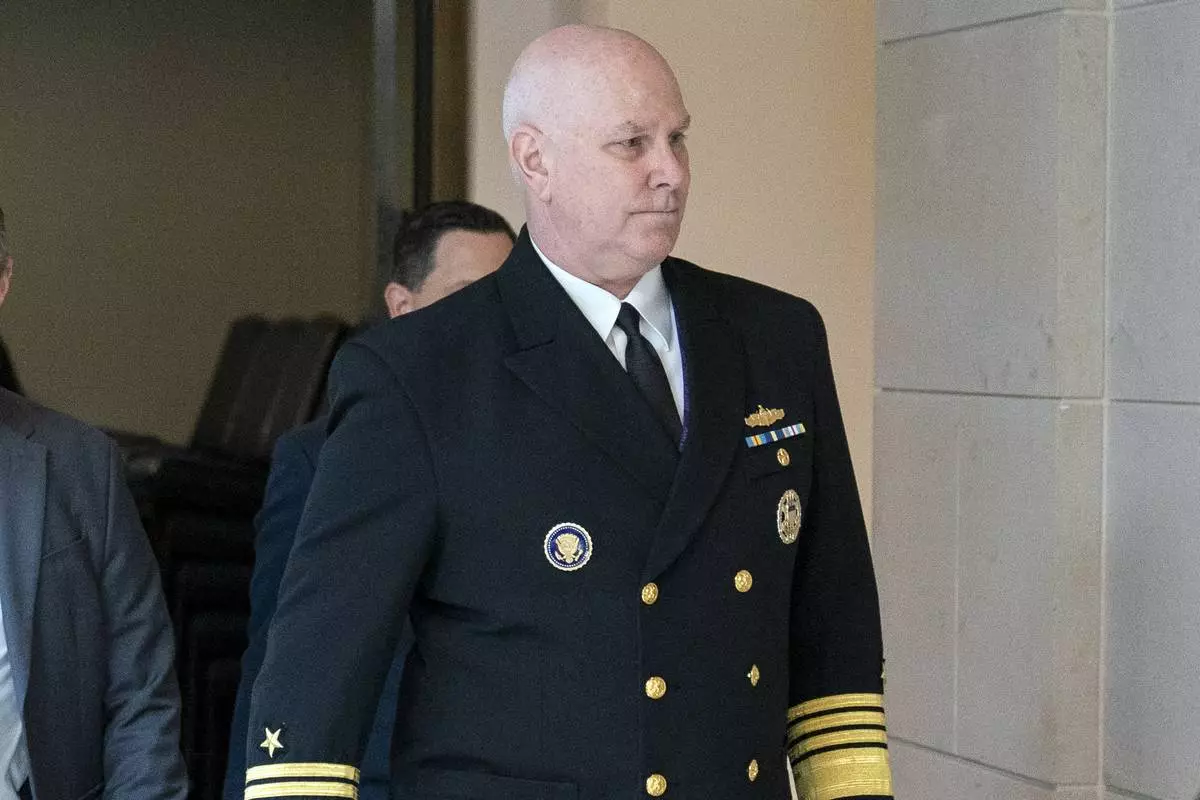The Supreme Court will decide whether the 2020 census can include a question about citizenship that could affect the allocation of seats in the House of Representatives and the distribution of billions of dollars in federal money.
The justices agreed Friday to a speedy review of a lower court ruling that has so far blocked the Trump administration from adding the citizenship question to the census for the first time since 1950.
Both the administration and opponents of the question agreed the court should settle the matter quickly because census forms need to be printed soon.
Arguments will take place in late April. A decision should come by late June.
The case pits the administration against immigrant advocacy organizations and Democratic-led states, cities and counties that argue the citizenship question is intended to discourage the participation of minorities, primarily Hispanics, who tend to support Democrats from filling out census forms.
The challengers say they would get less federal money and fewer seats in Congress if the census asks about citizenship because people with noncitizens in their households would be less likely to fill out their census forms.
The Constitution requires a census count every 10 years. A question about citizenship had once been common, but it has not been asked of every household since 1950. At the moment, the question is part of a detailed annual sample of a small chunk of the population, the American Community Survey.
The case stems from Commerce Secretary Wilbur Ross' decision in 2018 to add a citizenship question to the next census, over the advice of career officials at the Census Bureau, which is part of the Commerce Department. At the time, Ross said he was responding to a Justice Department request to ask about citizenship in order to improve enforcement of the federal Voting Rights Act.
U.S. District Judge Jesse Furman in New York ruled in January that the question could not be included, saying that fewer people would respond to the census and that the process Ross used was faulty.
Pressed for time, the administration bypassed the federal appeals court in New York and appealed directly to the justices. The challengers defended the lower court ruling, but acknowledged the need for a quick answer to the legal issue.
It's rare for the high court to weigh in without the benefit of appellate rulings. Such interventions usually are reserved for national political crises, including the Pentagon Papers case.
The administration has defended the addition of the citizenship question by arguing that courts have no business second-guessing the commerce secretary in performing a basic function of his job.
But Furman largely agreed with the local and state governments and rights groups that sued over the issue. He pointed out that Ross had ignored his own experts' views that a census with a citizenship question would produce less accurate results and add to the costs.
Documents and testimony produced as part of the trial in New York showed that Ross had begun pressing for a citizenship question soon after he became secretary in 2017, and that he had consulted Steve Bannon, who had been President Donald Trump's top political adviser, and then-Kansas Secretary of State Kris Kobach. Emails showed that Ross himself had invited the Justice Department request to add the citizenship question.
The judge's ruling held that Ross' decision about what to ask on the census was "arbitrary and capricious" under the federal Administrative Procedures Act.
There are at least four other ongoing lawsuits over the question, including a trial in San Francisco that was wrapping up Friday. The Supreme Court, though, is expected to settle the matter with the case it has agreed to hear.
WASHINGTON (AP) — The United States will pull the majority of its troops from Chad and Niger as it works to restore key agreements governing what role there might be there for the American military and its counterterrorism operations, the Pentagon said Thursday.
Both African countries have been integral to the U.S. military’s efforts to counter violent extremist organizations across the Sahel region, but Niger’s ruling junta ended an agreement last month that allows U.S. troops to operate in the West African country. In recent days, neighboring Chad also has questioned whether an existing agreement covered the U.S. troops operating there.
The U.S. will relocate most of the approximately 100 forces it has deployed in Chad for now, Pentagon press secretary Maj. Gen. Pat Ryder said Thursday at a press briefing.
“As talks continue with Chadian officials, U.S. AFRICOM is currently planning to reposition some U.S. military forces from Chad, some portions of which were already scheduled to depart. This is a temporary step as part of the ongoing review of our security cooperation, which will resume after Chad’s May 6th presidential election," Ryder said.
In Niger, the majority of the 1,000 U.S. personnel assigned there also are expected to depart, Ryder said.
U.S. and Nigerien officials were expected to meet Thursday in Niger's capital, Niamey, “to initiate discussions on an orderly and responsible withdrawal of U.S. forces," the State Department said in a statement late Wednesday. Follow-up meetings between senior Pentagon and Niger officials are expected next week “to coordinate the withdrawal process in a transparent manner and with mutual respect,” Ryder said.
Called status-of-forces agreements, these deals allow the U.S. to conduct critical counterterrorism operations within both countries' borders and have supported military partner training. The reversals have prompted concern that U.S. influence in Africa is losing ground to overtures from Russia and China.
Relations have frayed between Niger and Western countries since mutinous soldiers ousted the country’s democratically elected president in July. Niger’s junta has since told French forces to leave and turned instead to Russia for security.
Earlier this month, Russian military trainers arrived to reinforce the country’s air defenses and they brought Russian equipment, which they would train Nigeriens to use.
Niger plays a central role in the U.S. military’s operations in Africa’s Sahel region, a vast region south of the Sahara Desert. Washington is concerned about the spread of jihadi violence where local groups have pledged allegiance to al-Qaida and the Islamic State groups.
Niger is home to a major U.S. air base in the city of Agadez, about 920 kilometers (550 miles) from the capital, which is used for manned and unmanned surveillance flights and other operations. The U.S. also has invested hundreds of millions of dollars in training Niger’s military since beginning operations there in 2013.
Officials from the State Department, U.S. Africa Command and the Pentagon will work with Chad’s government to make the case for U.S. forces to continue operations, Joint Chiefs Vice Chairman Adm. Christopher Grady said Wednesday.
Grady told The Associated Press in an interview that if both countries ultimately decide the U.S. cannot remain, the military will have to look for alternatives to run counterterrorism missions across the Sahel.
“If we are asked to leave, and after negotiations that’s the way it plays out, then we are going to have to recalculate and figure out a new way to do it,” Grady said.
The news of the departure of U.S. forces in Chad was first reported by The New York Times.

FILE - Vice Chairman of the Joint Chiefs, Adm. Christopher Grady, right, arrives for a closed door briefing about the leaked highly classified military documents, on Capitol Hill, April 19, 2023, in Washington. Grady says there's been no final decision on whether or not all U.S. troops will leave Niger and Chad. (AP Photo/Alex Brandon, File)

US to pull troops from Chad and Niger as the African nations question its counterterrorism role

US to pull troops from Chad and Niger as the African nations question its counterterrorism role

FILE - A U.S. and Niger flag are raised side by side at the base camp for air forces and other personnel supporting the construction of Niger Air Base 201 in Agadez, Niger, April 16, 2018. The United States is attempting to create a new military agreement with Niger that would allow it to remain in the country, weeks after the junta said its presence was no longer justified, two Western officials told The Associated Press Friday April 19, 2024. (AP Photo/Carley Petesch, File)













